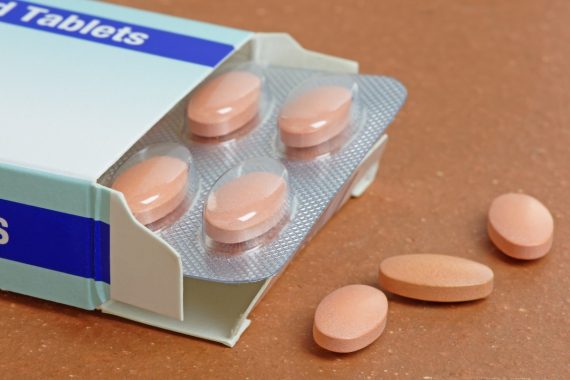Statins are only very rarely a cause of muscle pain, a large study has concluded.
The most comprehensive study to date, published in the Lancet, has found that statins are not the cause of 90% of reported muscle pains among users.
The University of Oxford study examined 155,000 patients in data taken from 23 large-scale randomised studies from the Cholesterol Treatment Trialists’ Collaboration.
In 19 statin-versus-placebo trials, researchers found that around a quarter of patients reported muscle pains regardless of whether they were taking the statin or the placebo.
While the trial did find that the drug very slightly increased the risks of muscle pain, about 14 out of 15 reports of muscle symptoms were not attributed to statins in those taking the drug.
Among those on a high-intensity treatment, nine out of 10 reports were found to not be related to the drug.
High and low/moderate intensity statin treatments caused a 8% and 3% increases in first reports of muscle pains respectively, but after the first year, low/moderate intensity treatment caused no increase in muscle pains versus control groups, researchers found
Joint lead author Professor Colin Baigent, from the Nuffield Department of Population Health, said: ‘Our research shows that, for most people taking a statin, any muscle-related symptoms they experience will not in fact be due to the statin itself – and so the potential benefits of statin therapy are likely to outweigh the muscle pain risks.
‘Previous reports that statins are a major cause of muscle pain are likely to have been the result of methodological problems in the studies giving rise to those reports.’
Professor Sir Nilesh Samani, medical director at the British Heart Foundation, which co-funded the study, said the research ‘reinforces the evidence that statins are safe, which should provide reassurance to the many people taking, or considering taking, these lifesaving drugs that have been proven to protect against heart attacks and strokes.
‘However, it also shows how common muscle pain symptoms are,’ he added.
‘Almost one quarter of patients who participated in the trials reported such symptoms whether they were taking statins or placebo. It is vital that the genuine concerns of people who do experience muscle symptoms are not dismissed and that doctors have continued consultations with these patients to ensure their medication is tailored to work best for them.’
RCGP chair Professor Martin Marshall added that he findings ‘should be reassuring to clinicians and to patients taking or considering taking statins that the risk of muscle pain is low and usually does not outweigh the benefits of statin use’.
Last year, a trial in 50 GP practices also found statins had no overall effect on muscle pain compared with placebo in people who had previously reported severe symptoms to their GP when taking the drugs.
A previous research paper, published in 2017, concluded that patients on statins are more likely to suffer side effects as a result of the ‘expectation of harm’ rather than the drugs themselves.
A version of this article was first published by Pulse’s sister title Nursing in Practice

















Think we need to ditch the statin talk. And start talking about sertraline.
Placebo effect or not, if a patient insists they have severe cramps with multiple types of statins that disappear on stopping them, then we won’t be prescribing them.